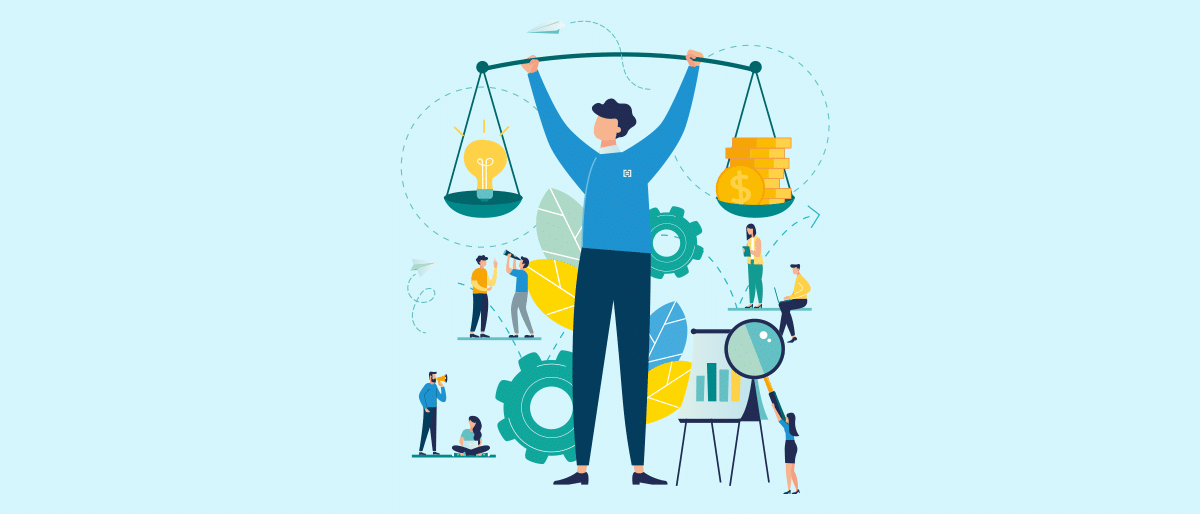Scaling Without Losing Quality: Maintaining Excellence in Growth
Written by harrison
Understanding the Challenges of Scaling
Balancing Quantity and Quality
Scaling operations often entails increased production, expanded services, and greater market penetration. However, rapid growth can strain resources, processes, and infrastructure, leading to compromises in quality and customer experience. Balancing the demands of scalability with the imperatives of quality control requires foresight, planning, and a relentless commitment to excellence.
Managing Complexity and Risk
As businesses scale, they encounter greater complexity and risk across various dimensions, including supply chain management, workforce dynamics, and customer relationships. Complexity breeds uncertainty, ambiguity, and vulnerability, posing challenges to organizational agility, resilience, and adaptability. Managing risk requires proactive identification, mitigation, and contingency planning to safeguard against potential disruptions and ensure continuity of operations.
Preserving Organizational Culture
Maintaining a strong organizational culture is essential for sustaining excellence amidst growth and change. As companies expand, they risk diluting their core values, vision, and identity, leading to disengagement, turnover, and loss of morale. Preserving organizational culture requires intentional leadership, effective communication, and inclusive decision-making processes that foster alignment, cohesion, and a sense of belonging among employees.
Strategies for Maintaining Excellence in Growth
Prioritizing Customer-Centricity
At the heart of sustainable growth lies a relentless focus on customer needs, preferences, and satisfaction. Prioritizing customer-centricity ensures that growth initiatives are driven by genuine value creation and meaningful relationships. By soliciting feedback, analyzing customer data, and anticipating evolving trends and preferences, businesses can tailor their products, services, and experiences to meet and exceed customer expectations.
Investing in Scalable Systems and Processes
Scalability hinges on the ability to adapt and evolve in response to changing market dynamics and business requirements. Investing in scalable systems, processes, and technologies enables businesses to streamline operations, optimize efficiency, and maintain consistency in quality and performance. From automated workflows and agile methodologies to cloud-based infrastructure and digital transformation initiatives, scalable solutions lay the foundation for sustainable growth and innovation.
Empowering Talent and Leadership
People are the driving force behind organizational excellence and growth. Empowering talent and leadership fosters a culture of ownership, accountability, and continuous improvement. By investing in employee development, leadership training, and succession planning, businesses cultivate a pipeline of talent that can drive innovation, navigate complexity, and lead with integrity and purpose. Empowered leaders inspire trust, foster collaboration, and champion a shared vision of excellence that permeates every aspect of the organization.
Navigating the Path to Sustainable Growth
Embracing Agile and Iterative Practices
In a rapidly evolving business landscape, agility and adaptability are essential for navigating uncertainty and seizing opportunities. Embracing agile and iterative practices enables businesses to respond to market feedback, iterate on product offerings, and pivot as needed to align with changing customer needs and market dynamics. By fostering a culture of experimentation, learning, and adaptation, businesses can embrace uncertainty as a catalyst for growth and innovation.
Cultivating Strategic Partnerships and Alliances
Collaboration is a cornerstone of sustainable growth, enabling businesses to leverage complementary strengths, resources, and expertise to achieve shared goals. Cultivating strategic partnerships and alliances expands market reach, accelerates innovation, and mitigates risk by diversifying revenue streams and distribution channels. By forging mutually beneficial relationships with suppliers, vendors, and industry stakeholders, businesses can unlock new opportunities for growth and differentiation in a competitive marketplace.
Measuring and Monitoring Performance
Effective performance measurement and monitoring are essential for maintaining excellence and accountability in growth initiatives. By establishing key performance indicators (KPIs), benchmarks, and metrics aligned with strategic objectives, businesses can track progress, identify areas for improvement, and make data-driven decisions to optimize resource allocation and drive continuous improvement. Real-time visibility into performance enables proactive intervention and course correction to ensure that growth initiatives remain on track and aligned with organizational priorities.
Emphasizing Innovation and Creativity
Innovation and creativity are essential drivers of sustainable growth and competitive advantage. As businesses scale, they must foster a culture of innovation that encourages experimentation, creativity, and risk-taking. By empowering employees to think outside the box, challenge the status quo, and pursue novel ideas, businesses can uncover new opportunities, solve complex problems, and differentiate themselves in the marketplace. Emphasizing innovation requires creating an environment that values diversity of thought, rewards initiative, and cultivates a growth mindset that embraces failure as a natural part of the innovation process.
Maintaining Flexibility and Adaptability
In a dynamic and rapidly changing business environment, maintaining flexibility and adaptability is critical for sustained success. Businesses that are rigid and resistant to change risk becoming obsolete in the face of disruptive forces and emerging trends. Maintaining flexibility requires a willingness to embrace uncertainty, experiment with new approaches, and pivot as needed to seize emerging opportunities and address evolving customer needs. By fostering a culture of adaptability and resilience, businesses can navigate uncertainty with confidence and agility, positioning themselves for long-term growth and relevance.
Upholding Ethical Standards and Integrity
Integrity is the foundation of trust and credibility in business relationships. As businesses scale, they must uphold high ethical standards and demonstrate integrity in all aspects of their operations. Ethical behavior involves acting with honesty, transparency, and fairness in dealings with customers, employees, suppliers, and other stakeholders. Upholding ethical standards builds trust, fosters loyalty, and enhances brand reputation, creating a competitive advantage in the marketplace. By prioritizing integrity and ethical conduct, businesses can build enduring relationships, mitigate reputational risk, and create a culture of accountability and trust.
Cultivating Resilience for Long-Term Success
Building Strategic Reserves and Contingency Plans
Resilience is the ability to withstand and recover from adversity, uncertainty, and disruption. Building strategic reserves and contingency plans enables businesses to weather unexpected challenges and navigate turbulent times with confidence. Strategic reserves may include financial reserves, inventory buffers, and talent pools that provide a cushion against economic downturns, supply chain disruptions, and other unforeseen events. Contingency plans outline response strategies and action steps to mitigate risks and minimize the impact of disruptions on business operations. By proactively preparing for contingencies, businesses can enhance their resilience and adaptability in the face of uncertainty.
Fostering Learning and Growth Mindset
A learning mindset is essential for continuous improvement and adaptation in a rapidly changing business landscape. Businesses that foster a culture of learning and growth mindset encourage employees to embrace challenges, learn from failure, and seek opportunities for self-improvement and professional development. By investing in training programs, mentorship initiatives, and knowledge-sharing platforms, businesses empower employees to acquire new skills, explore innovative ideas, and adapt to changing market dynamics. Fostering a learning mindset cultivates resilience, agility, and adaptability, enabling businesses to thrive in the face of uncertainty and disruption.
Embracing Diversity and Inclusion
Diversity and inclusion are essential for fostering resilience and innovation in organizations. Embracing diversity encompasses embracing differences in background, experience, perspective, and thought, creating a rich tapestry of ideas and insights that drive creativity and innovation. Inclusive organizations value and respect the contributions of all individuals, regardless of gender, race, ethnicity, age, or background, creating a sense of belonging and psychological safety for employees to thrive. By embracing diversity and inclusion, businesses can leverage the unique talents and perspectives of their workforce, foster collaboration, and drive innovation and resilience in the face of change.
Conclusion: Thriving in a Dynamic Business Landscape
Maintaining excellence in growth requires a holistic approach that integrates strategic foresight, operational excellence, and a commitment to ethical conduct and integrity. By emphasizing innovation, flexibility, and adaptability, businesses can navigate uncertainty with confidence and resilience, positioning themselves for sustained success in a dynamic and competitive business landscape. Cultivating resilience requires proactive planning, a learning mindset, and a culture of diversity and inclusion that values the contributions of all individuals. By embracing resilience as a core value and guiding principle, businesses can thrive in the face of adversity, seize opportunities, and create lasting value for customers, employees, and stakeholders.








